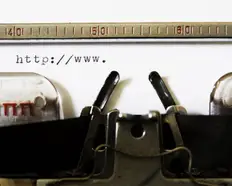Converse com a Ava - Sua Consultora AI de Negócios
Olá, eu sou a Ava, seu guia de IA para turbinar seus negócios!
Se você já está a frente de um negócio ou sonha em começar um, estou aqui para te ajudar a transformar suas ideias em realidade usando freelancers com a ajuda de tecnologia de IA. Compartilhe seus objetivos de negócio e, juntos, criaremos um projeto pelo qual nossos talentosos freelancers possam concorrer. Vamos transformar suas ideias em realidade!
Eu tenho um negócio
Estou começando um negócio
Algo deu errado ao enviar a conversa para o seu e-mail. Por favor, tente novamente mais tarde.
Você só pode salvar sua conversa uma vez por hora. Por favor, tente novamente mais tarde.
Sua conversa é muito curta. Continue conversando com a Ava para permitir o salvamento.
Editors Near You: How to Find the Right One for Your Project
Are you struggling to find the perfect editor for your next project?
13 de abr. de 2023 • 16 minuto lido
Atualizado em 26 de abr. de 2023 por Hector P.

Digital Marketer | 10+ years experience
Não foi possível copiar para a área de transferência, por favor, tente novamente após ajustar suas permissões.
Copiado para a área de transferência.

Hey there, fellow wordsmith! So, you're searching for Editors Near Me, huh? You've come to the right place! Whether you're a writer in need of polishing your manuscript, a small business owner aiming to craft the perfect website copy, or simply someone with a passion project that requires a professional touch, finding an Editor is an essential step towards achieving your goals. Everyone can benefit from the help of an excellent editor.
The internet has made searching for editors easier than ever. Platforms like Reedsy and Upwork allow you to peruse the profiles of countless professionals - all at a touch of a button! No more scouring through old classified ads or trying to extract recommendations from friends. Simply log on and dive into the world of editors at your fingertips.
One question that you might be asking is whether you should go for local talent, or branch out a bit when it comes to finding an editor. The honest answer? It depends on your individual preferences and what kind of project you're working on. Some folks prefer the personal touch of working with editors who are local - this can provide the opportunity for in-person meetings and more direct communication. On the other hand, hiring online or remote editors means that you've got access to a much larger pool of talent!
Ultimately, selecting an editor comes down to finding someone who aligns with your vision, understands your goals, and can collaborate well with you. The location may not mean much if you have an efficient communicator who really gets what you're going for.
An important tip: don't be afraid to shop around and reach out to multiple potential editors before making a decision. Look at their past work credentials, read testimonials from previous clients, and ask them some questions about their editing process to see if it matches your preferences. Remember, you're the one who'll be working closely with this person, so it's vital to feel comfortable and confident in their abilities.
In summary, your search for "Editors Near Me" is an exciting stepping-stone for your creative endeavors. With the vast world of online resources and talented professionals available, finding the perfect editor should be a breeze. So cheers to brilliant prose and compelling storytelling - here's to finding the best editor for your masterpiece!
Discover the Wonderful World of Editing!
Editing is an essential part of the content creation process. Whether it's a blog post, a novel, a newspaper article, or even a simple email, editing plays a crucial role in polishing and perfecting our written words. But what exactly does editing entail? Let's explore the definition of editing and uncover the magic behind this often-overlooked skill!
At its core, editing is the process of reviewing and correcting content to improve its clarity, coherence, consistency, and overall quality. It's all about refining language, removing errors, and ensuring a smooth flow in writing, so readers can easily comprehend and enjoy the text. This critical aspect of writing comes in many forms, including but not limited to:
An expert editor will usually pull from all these skills during the editing process to ensure your content is nothing short of amazing! Remember that strong writing isn't just about conveying ideas; it's about making sure those ideas are communicated clearly and effectively.
You might be wondering why editing is so important. Well, consider this: if your content is burdened with errors or inconsistencies, your credibility suffers. Readers may hesitate to trust your message or regard you as a professional source of information. Improper grammar and spelling can also hinder understanding and lead to confusion for your audience. Editing swoops in to save the day by assuring that your writing shines, connects with readers, and leaves a positive impression.
Now that you know the true prowess of editing, it's time to put it into practice! Whether you're an aspiring writer, an experienced wordsmith, or someone who simply wants to improve their communication skills, don't underestimate the power of editing. It's that special touch that takes your writing from good to great!
Who are Editors?
Just like the heroes behind the scenes in movies, editors are the unsung heroes in the writing world! They work diligently and painstakingly to make sure every piece of content shines its brightest. Let's delve into understanding these wonderful individuals a little better.
Being masters of grammatical rules and adept in language structure, they ensure that your writing not only reads smoothly but also effectively communicates your intended message. Their keen eye for detail leaves no room for inconsistency, typographical errors or even those minuscule punctuation mishaps.
Apart from polishing up content on a micro-level, editors also use their creativity and analytical abilities to enhance your work's overall structure and flow — optimizing it for target audience engagement. By providing valuable insights and suggestions to improve your writing, they help refine your voice and bring out the best version of your masterpiece!
Moreover, a professional editor can adapt their editing skills according to diverse projects such as blog posts, articles, academic papers, resumes, fiction or non-fiction books. These multi-talented folks stay updated on industry trends and style guides (think AP Stylebook, Chicago Manual of Style) to ensure that your content is accessible and compliant with industry standards.
In conclusion, editors are an essential cog in the wheel of content creation. Their expertise enables them to polish and refine written work while preserving its essence and author's voice. So next time you embark on a writing project, remember to team up with an editor to create content that truly shines!
How to Engage an Editor: Identifying a Good Editor
In the world of publishing, be it a blog, a book or any other written content, a professional editor plays a crucial role in ensuring that the final product is polished and error-free. Identifying a good editor can be a daunting task, especially if you are new to the field. But worry not! In this article, we will discuss some essential factors that can help you gauge the competence of an editor and guide you on engaging with them effectively.
First things first, gather some information about their background and try to understand their areas of expertise. A good editor should have ample experience in the field they specialize in. Be it fiction, academic works, or even technical documents; an editor has to be well-versed with the style and tone required for specific projects. Make sure to inquire about their qualifications, certifications, and any professional associations they might be part of.
Next, take a look at their portfolio to get an idea of the quality and range of their work. This could include samples from projects they have edited, testimonials from clients or authors they have worked with or any industry awards and recognitions they might have received. An excellent portfolio will showcase versatility as well as consistent quality across various editing projects.
Another critical aspect of engaging an editor is communication. A good editor should be able to provide constructive feedback and be open to discuss ideas and suggestions throughout the editing process. Additionally, they should also be responsive and prompt in communicating any changes or concerns that may arise while working on your project.
Lastly, reviews play a significant role in determining whether an editor is reliable or not. Seek reviews from fellow authors or clients who have worked with them before to get an honest opinion on their professionalism and efficiency.
Finding a great editor might seem like looking for a needle in a haystack, but keeping these factors in mind will make the process more manageable. Remember, a talented editor will not only refine your content but will also work with you as a partner to help bring out the best version of your written work. Happy hunting!
Understanding the Cost of Editing by an Editor
So, you've written a fantastic piece of content, whether it's a blog post, report, or even an eBook, and you're ready for the next step: securing a talented editor to ensure your work is polished and professional. One crucial detail to consider when engaging an editor is the cost involved. Fear not, as we're here to break it down for you!
The cost of editing varies greatly depending on factors such as the length and complexity of your document, the level of experience of your chosen editor, and the type of editing service required (proofreading, copy editing, or substantive editing). Before diving into specifics, it's essential to have a clear understanding of your needs and expectations in terms of the final output.
Generally, editors charge either by word count, by page count or by the hour. When dealing with an editor charging by word count or page count, consider using tools such as word counters or dedicated software like Microsoft Word which displays page counts to estimate costs upfront. For hourly rates, ensure that you have a clear idea of how much time the editor will be spending on your document before starting.
Also note that some editors may have a minimum charge to cover their time and efforts spent on smaller projects. Be sure to discuss this beforehand to avoid surprises later in the process.
Many editors offer a range of services at different price points. Basic proofreading - which covers spelling, grammar, punctuation and general flow - can be found at more affordable rates. However, if you're looking for more comprehensive support with aspects such as copy editing (clarifying meaning and focusing on style), content reorganisation or even fact-checking, expect higher costs due to the additional time and expertise required.
A great way to get an accurate quote is to provide a sample or two of your work to the editor, allowing them to assess its complexity and give you a tailored cost estimate. Armed with this information, you can move forward confidently in your relationship with your selected editor.
Now that you're informed about the costs associated with editing, you're well on your way to ensuring that your content shines! Happy writing!
Expectations: Deliverables from an Editor
Once you find a suitable Editor for your project, it's time to discuss the nitty-gritty details. When working with an Editor, knowing what to expect in terms of deliverables is essential. This helps set the foundation for an effective and smooth collaboration, ultimately leading to the desired outcome – a polished final product that’s free from any grammar, spelling, or punctuation errors.
The first step in setting expectations is determining the type and depth of editing required. The scope of work can vary significantly, depending on whether you need a basic proofreading service or a comprehensive content edit. In general, an Editor’s deliverables may include:
Make sure to discuss the expectations for turnaround time as well, which may vary depending on the level of editing needed and the Editor’s existing workload. It's essential to keep open channels of communication throughout this process, ensuring that both parties understand each other's needs and preferences.
Furthermore, consider discussing opportunities for multiple editing rounds. This allows you to review changes made during the first round of edits and provide your input before your Editor does another pass. This iterative process can enhance the final result as it allows both parties to fine-tune the material collaboratively.
In conclusion, having a clear understanding of what to expect from an Editor in terms of deliverables is key to establishing solid working relationships. Be sure to discuss the scope of work, turnaround time, and applicable revision rounds before kicking off your editing partnership. By setting these expectations early on, you can set the stage for an effective collaboration that will yield the desired outcome for your project.
Working Remotely with an Editor: Embracing Global Talent
In today's fast-paced digital age, it's easier than ever to hire remote talent. When it comes to embracing the world of freelance editing, working remotely with an editor can prove to be a hugely beneficial experience. Gone are the days when you had to find an editor in your local area! But how exactly do you go about working remotely with an editor, and what advantages can this bring to your project?
First and foremost, it's important to establish clear communication channels between you and your remote editor. Email will no doubt be your primary method of communication, but considering using other tools such as Skype, Google Hangouts, or Slack for calls and instant messaging. This will ensure that you can maintain a regular dialogue throughout the process and that your work is carefully guided in-line with your vision.
Thanks to the power of technology, sharing documents and providing real-time feedback has never been more streamlined. Utilize platforms like Google Docs or Dropbox as a means of sharing your work securely and efficiently; this will keep the editing process moving smoothly and prevent any unnecessary delays due to file attachments getting lost in emails!
One of the major advantages of working remotely with an editor is tapping into a global talent pool; this puts no limits on finding the perfect match for your project. With access to online marketplaces such as Freelancer.com, you can browse through countless skilled editors who possess various specialties; their diverse backgrounds may bring new and exciting perspectives to your work. Plus, working remotely often allows for greater flexibility in terms of scheduling, as both you and the editor are not tied down by traditional office hours or time zones.
In conclusion, working remotely with an editor offers several advantages over hiring a local professional. By utilizing effective communication tools, embracing modern document-sharing platforms, and being open to working with international talent, you can guarantee a smooth, efficient, and enjoyable experience of collaborating with your remote editor.
Pros and Cons of Local vs. Remote Editors
When it comes to working with an editor, nowadays, you have more options than ever before. With the growing accessibility of the internet and our ever-increasing connectivity, hiring local or remote editors has become a question many writers and businesses face. But is one better than the other? Let's dive into the pros and cons of each.
In conclusion, both local and remote editors present unique advantages and drawbacks. Every project is different, so carefully considering your specific needs and priorities will help you make the best decision for your editing needs. Ultimately, maintaining open communication with your editor—whether local or remote—will be key to fostering a successful working relationship.
Pros and Cons of Freelance vs. Agency Editors
When it comes to working with an editor, we have many options in today's internet-connected world. One significant decision to make is whether to work with a freelance editor or an agency editor. To help you make an informed choice, let's explore the pros and cons of each.
In summary, both freelance and agency editors offer unique benefits and drawbacks. To determine which is the best fit for your particular needs, consider factors such as budget, available time, and the specific expertise required for your editing project. Whichever route you choose, collaboration with a skilled editor can elevate your work to new heights!
Recap of Key Points: Choosing the Right Editor for You
Embarking on a journey to find the perfect editor for your content can be a daunting task, especially with the number of available options in today's digital world. Luckily, you are not alone in this! By understanding key aspects of engaging and working with editors, you can make well-informed decisions and hire an expert who will help polish your work to its best version.
Firstly, let's talk about identifying a good editor. This can be done by examining their portfolio, testimonials, years of experience, background in the subject matter, and language proficiency. Keep in mind that good references and relevant experience are also strong indicators of an editor's abilities.
Moving on to the cost of editing, know that prices may vary greatly depending on factors such as the scope of work and the editor's experience. However, try not to focus solely on price – a high-quality edit will add immeasurable value to your work.
The deliverables you can expect from an editor include a thorough assessment of your content, suggestions for improvement, correction of grammatical errors, and more. Communication is key here – be sure to discuss expectations upfront and stay in touch throughout the process.
When it comes to working with an editor, you have choices between local or remote editors and freelance or agency editors. Weighing the pros and cons for each option is crucial. For instance, working remotely with an editor grants you access to global talent with different skills and experiences while working with a local editor allows for easier face-to-face communication. Similarly, consider whether you need the expertise of an established agency or would be better served by a flexible freelance editor.
In conclusion, don't underestimate the impact an excellent editor can have on your work. Remember to keep these key aspects in mind as you search for the perfect professional to enhance your content, tailoring your choice to the specific requirements of your project. The road to a successful collaboration is paved with research, communication, and clear expectations!
Final Thoughts and Recommendations
As we've explored throughout this article, engaging and working with an editor is a crucial step in the process of creating high-quality content. Regardless of whether you're working remotely or locally, with a freelance or agency editor, their role in polishing and enhancing your work is not to be underestimated. Now that we've covered some key points on finding and collaborating with an editor, here are our final thoughts and recommendations to ensure a smooth and successful partnership.
First and foremost, clear communication is vital. Establish expectations regarding deadlines, scope of work, and fees upfront. This not only helps avoid misunderstandings but also contributes to building a strong working relationship. Remember to always provide editors with comprehensive information about the project, as well as any specific guidelines they need to follow.
If you're selecting between a remote or local partnership, consider the pros and cons we discussed earlier. While remote editors offer accessibility and convenience for those in different time zones or locations, having someone nearby may mean faster response times or the ability to meet face-to-face if needed. Ultimately, the decision depends on your preferences and requirements.
Another important aspect is determining if you prefer a freelance editor or agency representation. Freelance editors are typically more flexible and cost-effective; however, they may juggle numerous projects simultaneously. Agencies sometimes come with higher price tags but can provide additional resources and support as needed.
Lastly, invest in the expertise of skilled editors by conducting thorough research before engaging one. It's essential to know what specific qualities you're looking for in an editor so you can make an informed decision that suits your project's needs best.
In conclusion, finding the right editor is a pivotal aspect of any content creation process. Keeping these recommendations in mind while searching for an editor will help ensure you forge a successful collaboration tailored to your project's unique needs. Happy editing!
Hire an Expert Editor on Freelancer.com
Congratulations! You have made an important decision to engage an editor for your project. A professional editor can not only help sharpen your content and bring clarity to your message but also fine-tune your written work and make it flawless. There is a myriad of excellent editors out there, but how do you find the perfect one for your project? The answer is simple - head to Freelancer.com !
Freelancer.com is a leading online platform that connects you with skilled freelancers around the world, including expert editors. Whether you require providing copy for a blog post or need someone to polish a full-length manuscript, you'll find a plethora of experienced professionals on this site.
Why choose Freelancer.com for your editing needs? For starters, it's not only easy to navigate, but also offers a wide range of services by skilled professionals. Simply create an account, post your project and its requirements, and watch the bids come in. Review prospective editors' profiles, including their portfolios and client feedback to ensure you're making an informed decision.
The platform also allows secure monetary transactions via their Milestone Payment System. It ensures that the funds are released only when you're satisfied with the completed project. Additionally, Freelancer.com offers 24/7 customer support that comes in handy during deadlines or when addressing unforeseen issues.
Moreover, remember that remote collaboration is not only cost-effective and provides access to various talents worldwide but can also save time on unnecessary meetings or discussions as you'll mostly communicate through online messaging platforms.
Regardless of where you are in the world or the genre of content you're working on, hiring an expert editor from Freelancer.com can undoubtedly elevate your work's quality, credibility and influence.
In conclusion, don't hesitate to take advantage of Freelancer.com's myriad of resources and professionals ready to help you bring out the best in your writing. An expert editor is just a few clicks away – good luck on your journey to perfecting your masterpiece!
Diga-nos o que você precisa que seja feito
Digite o nome do seu projeto
Histórias Relacionadas
Fale com um de nossos Co-pilotos Técnicos para que ele possa te ajudar no seu projeto
Artigos Recomendados Somente para Você

A good editor makes the difference between your book ending up in book stores or ending up in the trash.
6 min read

Learn how to get your book edited and published online.
6 min read

Learn how to edit and publish a book that sells.
6 min read

Using freelancers has been a key part of the success for these solopreneurs and entrepreneurs. Hear it straight from them.
6 min read
Obrigado! Te enviamos um link por e-mail para que você possa reivindicar seu crédito gratuito.
Algo deu errado ao enviar seu e-mail. Por favor, tente novamente.
Carregando pré-visualização
Permissão concedida para Geolocalização.
Sua sessão expirou e você foi desconectado. Por favor, faça login novamente.




